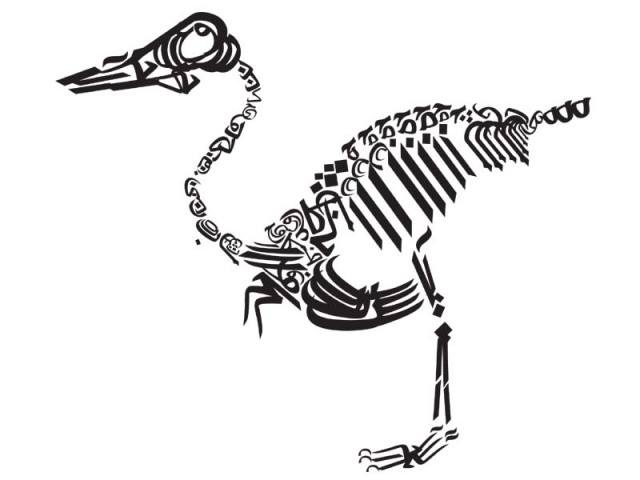Ormuri: The silent victim of militancy
Migration of the Burki tribe from S Waziristan to Karachi and other cities has put Ormuri on the brink of extinction.

The term ‘collateral damage’ is normally applied to the loss of human life during war; it may now have to expand to include language.
When a military operation was launched in South Waziristan, Ormuri – the native language of the Burki people – also came under assault. Ormuri speakers are now scattered around the country and the language is on the brink of extinction.
The language flourished in Kaniguram, a mountainous valley in South Waziristan – its only habitat on earth. An estimated population of about 10,000 Ormuri speakers lived in Kaniguram before they migrated to different parts of the country. Today, Burki tribesmen are spread in insignificant numbers in Lahore, Peshawar, Bannu and Kaniguram, and in Logar and Paktia in Afghanistan. However, most have adopted the dominant languages of their new ports, such as Pashto, Urdu and Punjabi.
Munawwar Burki, a criminology student at the University of Karachi who hails from the valley, describes the language as the east Iranian sister dialect of Pashto and Balochi, and says that it was spoken by the Burki people living alongside the Pushto-speaking Mehsuds. It is this proximity with the Pashtuns that has had a deep impact on Ormuri culture, which borrows from the Pakhtunwali code of conduct and had adopted many cultural rituals.
Rozi Khan Burki is one of the few people who have carried out detailed research on the language. In his book written purely in Ormuri, he claims that the similarities between Pashtun and Ormuri people persist because Ormur was the grandson of Qasi Abdur Rasheed – the forefather of all Pashtun tribes. “They are originally Pashtuns who migrated in 1025 to Kaniguram from Logar, Afghanistan. Their language was initially known as ‘Burgista’ but now it has become Ormuri,” he said.
His account of the language’s history links it to Mehmood Ghaznavi. When Mehmood Ghaznavi was launching his last assault on India, he took a group of 3,000 Burkis from Afghanistan. Those Burkis extinguished the fire-circle for protection, set up by Hindus around the Somnath Temple that consequently helped Ghaznavi conquer the temple and India. It is this story that lends the Burki people their name Ormuri – the fire extinguishers.
Rozi Khan says that although the loss of the language will not affect the people economically, it will kill oral history as well as Ormuri customs and traditions. “Different plants will lose their names and local herbal medicines will be lost. Some birds and animals will become nameless and some proverbs, old sayings and myths will die out,” he explains.
After writing an Ormuri book, Rozi Khan Burki also started a campaign to bring together people who can write poetry in Ormuri – about 15 people. But the efforts were marred by unrest in the valley. “It is now impossible for me to gather all internally displaced poets and people who were working on the language”, said Khan.
Munawwar Burki stresses that efforts must be stepped up to save the language before it completely vanishes. As the speakers move out, they adopt dominant languages of their new ports. He said that constant war forced almost everyone to move out of Kaniguram: “I think right now there is not a soul left in Kaniguram; not even a single dog.”
Thus his efforts are focussed on uniting the community in Karachi, where most of the displaced from Kaniguram came to settle. But due to the fact that all Ormuri people settled independently, they are scattered and difficult to trace. Families live largely in Sohrab Goth, Landhi, Sultanabad, Lyari Bypass, Kwari Colony, Banaras and Baldia Town. “Since the speakers have no official community or society where they can live together and get a chance to speak in their mother tongue, they are losing the language in bits and pieces on a daily basis,” he says with much regret.
The local community in the city has risen to the threat facing their heritage. Munawwar Burki started running an organization for the welfare of Burki tribesmen in Karachi and has already gathered figures of the remnants in the city – around 1,000 families out of which roughly 500 can speak Ormuri. Also Shah Mehmood Burki adds that the female members of Burki families continue speaking in Ormuri which gives hope that the language will be passed on to the next generation.
Published in The Express Tribune, December 6th, 2011.













COMMENTS
Comments are moderated and generally will be posted if they are on-topic and not abusive.
For more information, please see our Comments FAQ